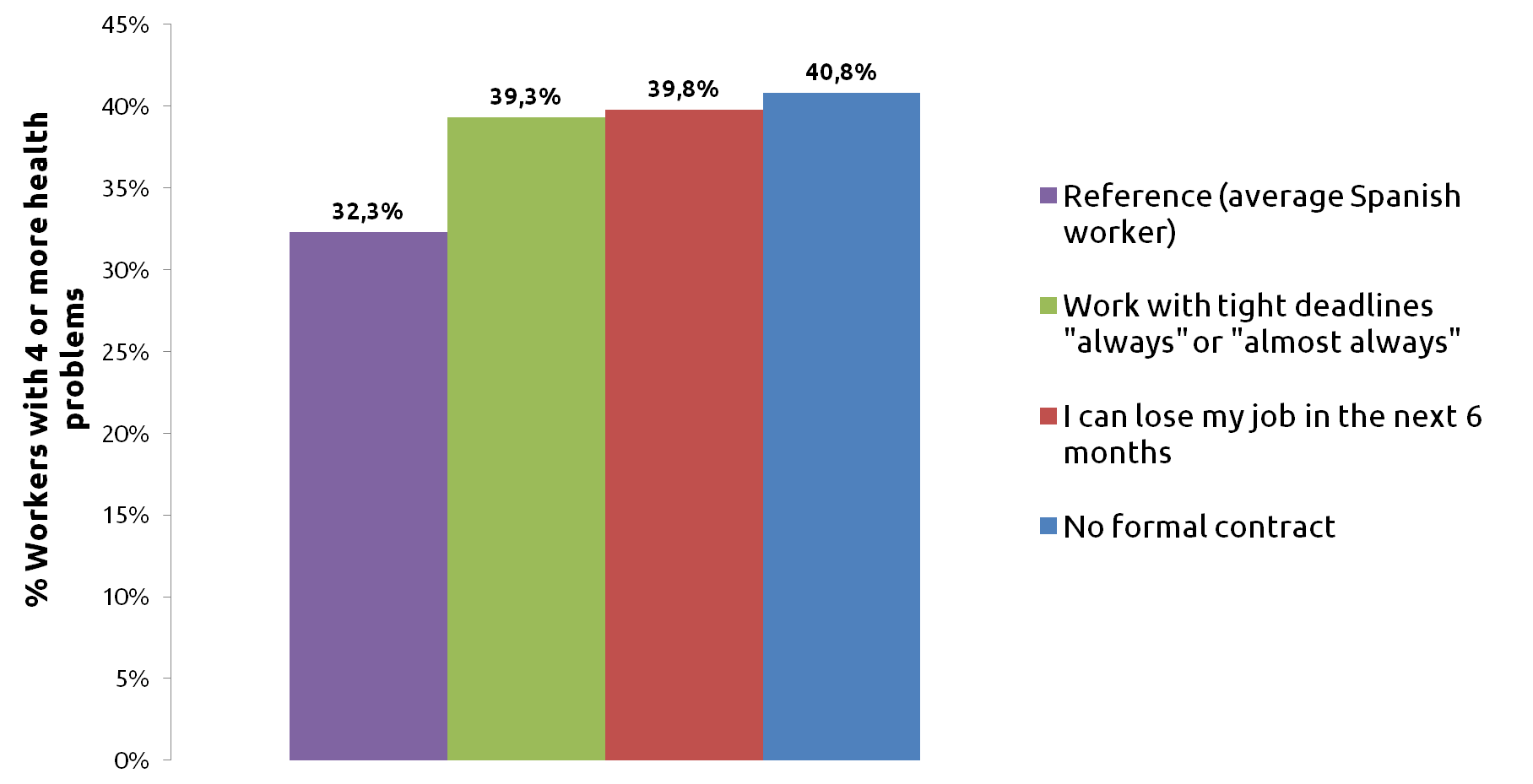Close to a third of Spanish workers seem to experience tight deadlines (or very high speed) all or almost all of their time at work. They are exposed to what specialists call a high intensity of work (a measure of the density, workload and effort at work). This is based on official microdata from the last European Working Conditions Surveys from 2015, the most relevant source of working conditions in Europe.
So…what is the problem? Chief among others that a 40% of those exposed to high intensity see an important impact on their health (measured by four or more health problems from a comprehensive list that includes up to 10 types of different mental and physical health issues).
When trying to better grasp the takeaways of the data, it makes sense to further compare them with other working/employment conditions that like precariousness, we intuitively associate with bad health. Using the same sources, the bad health (linked to a high intensity level) only seems comparable to the one suffered by workers under no formal contract and/or to those workers that experience a high job insecurity (stating that they very much agree with the fact that they could well lose their jobs in the next six months). Details in the figure below:

There is, however, a key difference. While workers with no contract represent ~6% of the workforce and workers suffering high job insecurity reach 13%, the workers exposed to high intensity are up to one third of the total workforce.
The results are well in sync with multiple European studies that highlight the growing effects of the work intensification on health, in line with the enormous epidemiological literature that has traditionally demonstrated the influence of job demands and stress on both physical and mental health.
In summary, the health effects of the work intensification process seem as important as those linked with the most deleterious aspects of precariousness, but they happen to affect to many more workers… of all types.
The question that emerges is can we make this more visible –and maybe even use it politically– ?

